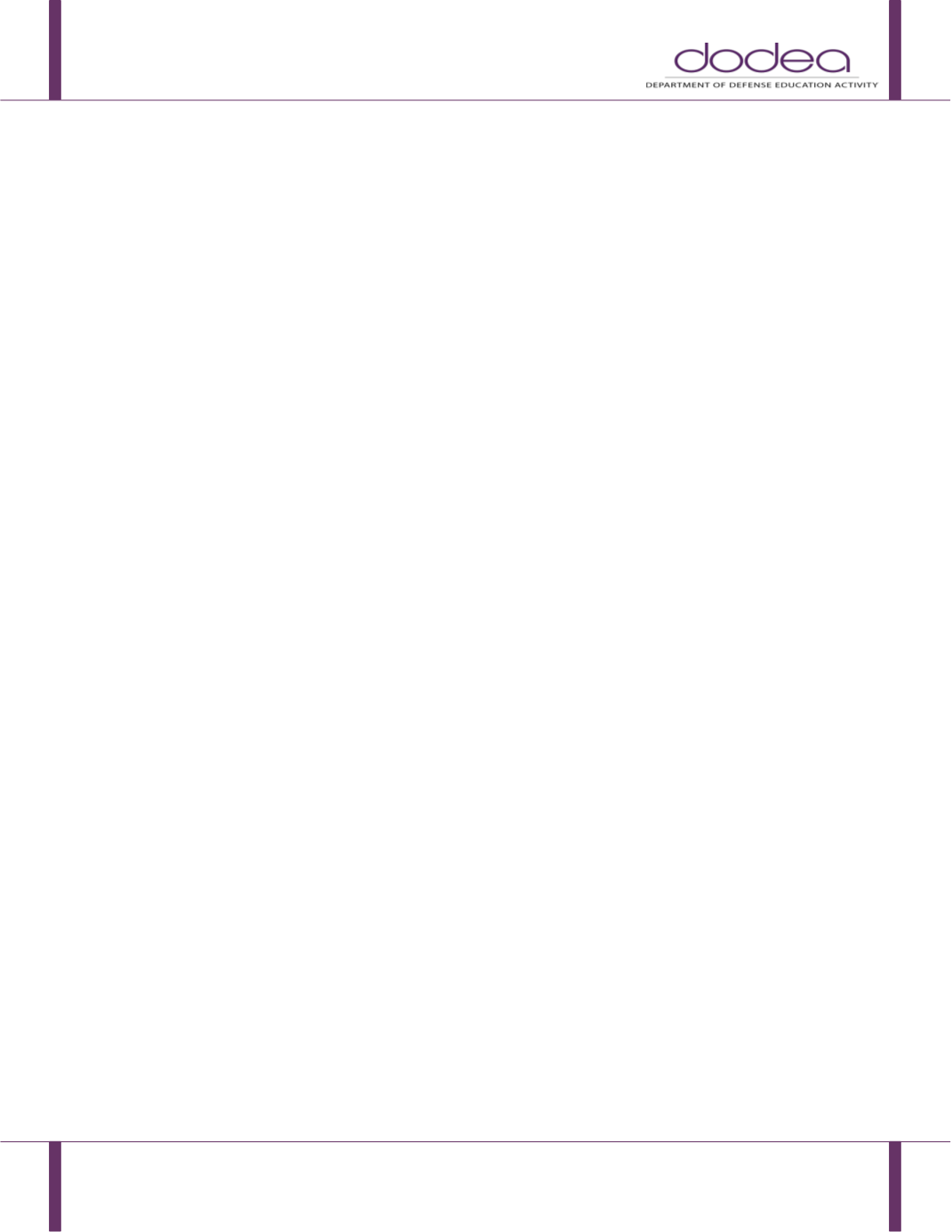

1342.12 Companion
July 12, 2017
Page 180
each removal; b. The child’s behavior is substantially similar to the student’s behavior in previous
incidents that resulted in the series of removals; c. The total amount of time the student is removed; or
d. The proximity of the removals to one another.
“Child”
means any person who shall not have reached his/her 22nd birthday by September 1 of the
current year.
“Child with a disability”
means a student evaluated in accordance with the DoDM 1342.12 as having an
intellectual disability, a hearing impairment (including deafness), a speech or language impairment, a
visual impairment (including blindness), a serious emotional disability (referred to in this part as
“emotional disability”), an orthopedic impairment, autism, traumatic brain injury, and other health
impairment, a specific learning disability, deaf-blindness, or multiple disabilities who, by reason thereof,
needs special education and related services. This also includes developmental delay.
“Collaboration”
means interaction among professionals as they work toward a common goal. Teachers
do not necessarily have to engage in co-teaching in order to collaborate.
“Complainant”
means a person making an administrative complaint.
“Consent”
means the permission obtained from the parent ensuring they are fully informed of all
information about the activity for which consent is sought, in his or her native language or in another
mode of communication if necessary, and that the parent understands and agrees in writing to the
implementation of the activity for which permission is sought.
“Continuum of placement options”
means instruction in general education classes, special classes,
special schools, home instruction, and instruction in hospitals and institutions; includes provision for
supplementary services (such as resource room or itinerant instruction) to be provided in conjunction
with regular class placement.
“Controlled substance”
means a drug or other substance identified under Schedules I, II, III, IV, or V in §
202(c) of the Controlled Substances Act, 21 USC § 812(c). (34 CFR 300.530(i)(1))
“Co-teaching”
means a service delivery option with two or more professionals sharing responsibility for
a group of students for some or all of the school day in order to combine their expertise to meet student
needs.
“Counseling services”
means services provided by qualified psychologists, or counselors.
“Dangerous weapon”
means a weapon, device, instrument, material, or substance, animate or
inanimate, that is used for or is readily capable of, causing death or bodily injury, except that such term
does not include a pocket knife with a blade of less than three inches in length.
“Day”
means a calendar day, unless otherwise indicated as a business day or a school day.
“Deaf-blindness”
means a combination of hearing and visual impairments causing such severe
communication, developmental, and educational needs that the student cannot be accommodated in
programs specifically for student with deafness or student with blindness.
“Deafness”
means a hearing loss or deficit so severe that it impairs a student’s ability to process
linguistic information through hearing, with or without amplification, and affects the student’s
educational performance adversely.


















